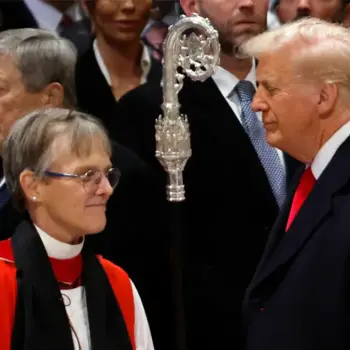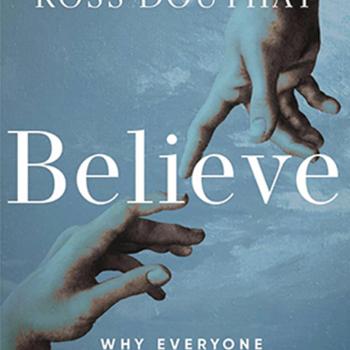The apostles would have immediately confronted a serious problem. Would they give them all out immediately or dispense them over the course of a year, or ten years? Perhaps they suspected that the world would last another 100 years; they might limit the distribution of salvations to only ten per year. Or perhaps they needed to reserve them to last 1,000 years. Regardless, there would have had to be rules and norms governing how they were distributed. Perhaps this would be based on personal displays of virtue, of monetary payment, of family lineage, and so on.
No matter what the results, the history of Christianity would have been very different if Jesus had not made salvation a non-scarce good, but instead had limited the supply and charged the Church with allocation. There would have been no liberality in spreading the gospel. Forget the whole business of going to the ends of the earth or becoming fishers of men. Under a limited supply, the salvation could not be replicated. If, for example, the apostles had chosen a 1,001th person to be saved, eternal life would have been taken away from the first person to receive it.
This might sound preposterous and even frightening, but this is precisely the situation that persists with all material goods in the real world. All scarce things are fixed, and all things must be allocated. Even under conditions of high economic growth and rapid technological progress, all goods in existence at any one time are finite and cannot be distributed without norms or property rights, lest there be a war of all against all. Another factor of production that is scarce is time, and this too must be allocated by some means.
As it happens, salvation is indeed a non-scarce good available to all who seek it. So are the intercessions of saints. No one fails to ask for the intercession of a saint, but no one knows for a fact whether someone else is employing that saint at the moment. No, we rightly assume that saints have no limits on their time for prayer. Indeed, the limitlessness of salvation is the prototype for all forms of non-scarce goods like music, texts, images, and teachings.
But consider people who have dedicated their life to the work of these non-scarce goods. One can easily imagine that they find immense power and glory in these goods. I certainly do. They are the things to which all religious people have devoted their lives. This is a fantastic thing -- and truly, without non-scarce goods, the whole of civilization would come crashing down to the level of the animals.
At the same time, the world does not only consist of non-scarce goods. The economic problem deals with the issue of scarce goods. And this is just as important to the flourishing of life on earth. All things finite are subject to economic laws. We dare not ignore them nor ignore the systems of thought seeking to explain their production and distribution. Note that Jesus' parables deal with both realms. So should we all.
This article first appeared August 25, 2010, at Inside Catholic. It is reprinted with permission.
Jeffrey Tucker is the editorial vice president of the Mises Institute, editor of Mises.org, author of Sing Like a Catholic (2009) and Bourbon for Breakfast (2010), adjunct scholar of the Mackinac Institute, faculty member of Acton University, and managing editor of Sacred Music magazine.




